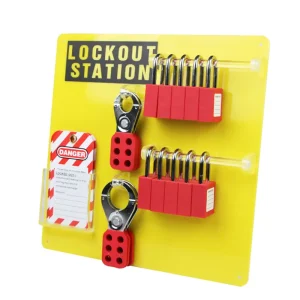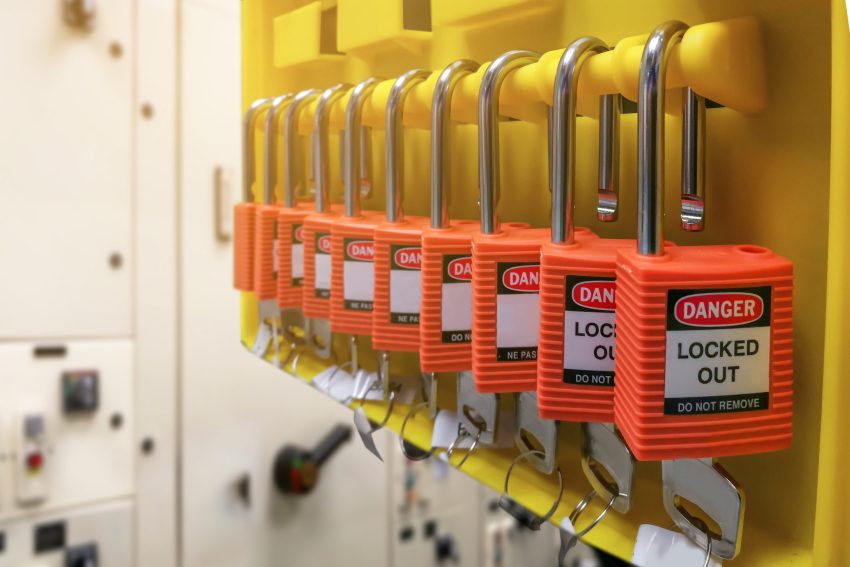Lockout tagout station cabinets play a crucial role in industrial safety. They ensure workers properly store and manage lockout/tagout devices, which prevents accidental startups during maintenance or repair work. These cabinets are critical components of the Lockout/Tagout (LOTO) procedures, which protect workers from the unexpected release of hazardous energy. This article explores the various aspects of lockout tagout station cabinets, including their features, types, benefits, and best practices for implementation and maintenance.
Understanding Lockout/Tagout (LOTO)
Lockout/Tagout is a safety procedure designed to ensure that dangerous machines get properly shut off and cannot start up again before maintenance or repair work is completed. OSHA (Occupational Safety and Health Administration) sets stringent standards for LOTO to prevent accidental machine startups that can cause serious injuries or fatalities. Key components of LOTO procedures include locks, tags, and devices that isolate energy sources.
Features of a Lockout Tagout Station Cabinet
A lockout tagout station cabinet typically consists of several essential features designed to secure hazardous energy sources and organize LOTO devices. These features include:
- Construction Materials: Manufacturers often use durable materials such as steel or heavy-duty plastic to withstand industrial environments.
- Storage Capacity: Cabinets come in various sizes to accommodate different quantities of locks, tags, and devices.
- Locking Mechanisms: Secure locking mechanisms ensure that only authorized personnel can access the LOTO devices.
- Accessibility and Organization: Cabinets organize LOTO devices neatly, making them easily accessible when needed.
Types of Lockout Tagout Station Cabinets
Lockout tagout station cabinets come in various types to suit different workplace needs. For example:
- Wall-Mounted Cabinets: These cabinets remain fixed to a wall, making them ideal for areas with limited floor space.
- Free-Standing Cabinets: These cabinets stand on their own, providing more flexibility in placement within a facility.
- Portable Cabinets: Workers can move these cabinets as needed, offering flexibility in larger facilities.
- Customized Cabinets: These cabinets can be tailored to meet specific requirements, including the type and number of lockout devices required.
Selecting the Right Lockout Tagout Station Cabinet
Choosing the appropriate lockout tagout station cabinet involves assessing workplace needs, considering capacity and storage requirements, and ensuring the cabinet’s durability. Additionally, ensure compliance with relevant safety standards to provide a safe working environment.
Benefits of Using Lockout Tagout Station Cabinets
Implementing lockout tagout station cabinets offers numerous benefits. First, they enhance workplace safety by preventing accidental equipment startups. Moreover, they improve compliance and accountability, streamline LOTO procedures, and significantly reduce the risk of accidents and injuries.
Implementing Lockout Tagout Station Cabinets in Your Facility
To effectively implement lockout tagout station cabinets, start with a safety audit to identify potential hazards. Next, train employees on proper LOTO procedures, establish a maintenance schedule, and conduct regular inspections and audits to ensure ongoing compliance and effectiveness.

Best Practices for Maintaining Lockout Tagout Station Cabinets
Regular maintenance of lockout tagout station cabinets is essential. Conduct inventory checks to ensure all devices are accounted for, update lockout devices as needed, ensure tags remain readable, and replace any damaged equipment immediately to maintain safety standards.
Case Studies: Successful Implementation of Lockout Tagout Station Cabinets
Implementing lockout tagout station cabinets has led to success in various industries. For instance:
- Manufacturing Plant: Improved safety records and reduced downtime by implementing wall-mounted lockout tagout station cabinets.
- Chemical Processing Facility: Enhanced compliance with stringent safety regulations through the use of portable lockout tagout station cabinets.
- Food and Beverage Industry: Streamlined LOTO procedures and improved employee training programs with customized lockout tagout station cabinets.
Common Challenges and Solutions
Implementing lockout tagout station cabinets can present several challenges. Resistance to change, ensuring consistent use, dealing with lost or damaged locks, and integrating with existing safety protocols are common issues. However, solutions involve continuous employee education, maintaining an inventory system, and incorporating lockout tagout station cabinets into the broader safety management framework.
Technological Advances in Lockout Tagout Station Cabinets
Advancements in technology have led to the development of digital lockout systems, RFID and barcode integration, smart lockout devices, and mobile applications for managing LOTO procedures. Consequently, these innovations enhance the efficiency and effectiveness of lockout tagout station cabinets.
Regulatory Compliance and Legal Considerations
Compliance with OSHA requirements is mandatory. Proper documentation and record-keeping are crucial for demonstrating compliance and avoiding legal issues. Regular reviews and updates of LOTO procedures help ensure ongoing adherence to safety regulations.
Training and Education for Effective LOTO Implementation
Effective LOTO implementation requires comprehensive training programs. These should include hands-on training, workshops, and regular evaluations to ensure that employees understand and adhere to safety protocols. Supervisors and safety officers play a key role in reinforcing these practices.
Conclusion
Lockout tagout station cabinets are vital for maintaining a safe work environment and ensuring compliance with safety regulations. By implementing and maintaining effective LOTO systems, organizations can protect their employees, reduce the risk of accidents, and enhance overall workplace safety.
FAQs
- What is the primary purpose of a lockout tagout station cabinet? The primary purpose of a lockout tagout station cabinet is to provide a centralized location for storing and managing lockout/tagout devices. This ensures that workers properly isolate hazardous energy sources during maintenance and repair work.
- How often should lockout tagout station cabinets be inspected? Inspect lockout tagout station cabinets regularly, at least once a month, to ensure all components remain in good condition and properly accounted for.
- Can lockout tagout station cabinets be customized? Yes, you can customize lockout tagout station cabinets to meet the specific needs of a facility, including the type and number of lockout devices required.
- What training is required for employees to use lockout tagout station cabinets? Employees should receive comprehensive training on LOTO procedures. This training should include the proper use of lockout tagout station cabinets, device application, and safety protocols.
- Are there any technological tools to help manage lockout tagout station cabinets? Yes, various technological tools are available. These include digital lockout systems, RFID and barcode integration, smart lockout devices, and mobile applications that help manage and streamline LOTO procedures.

